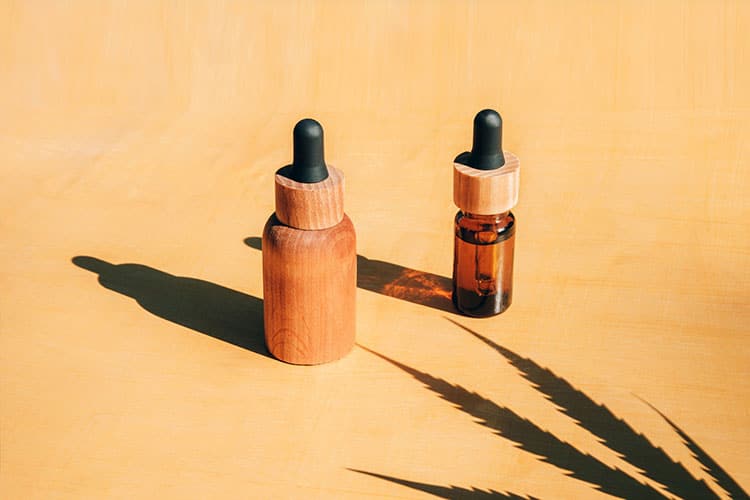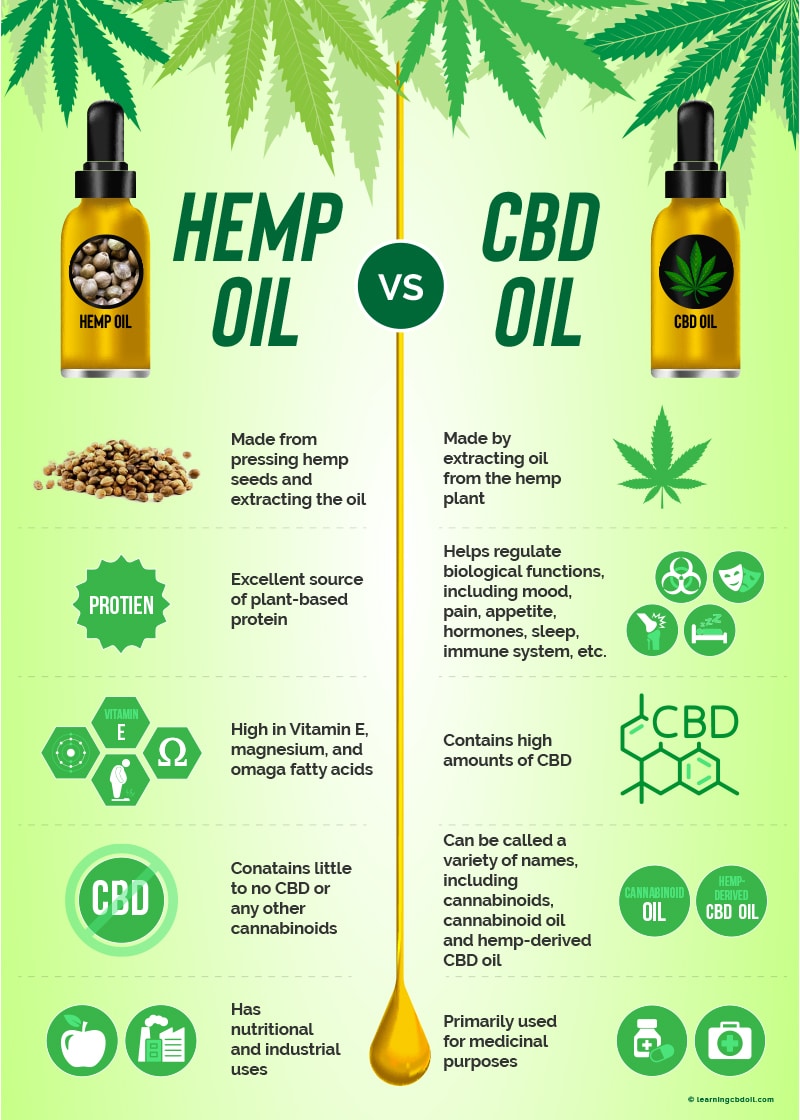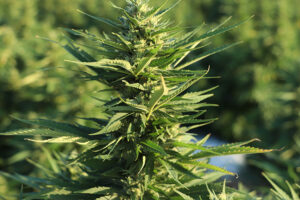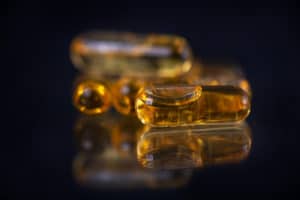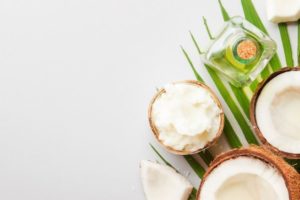The increasing popularity of hemp and CBD products has left many consumers wondering about the differences between hemp oil and CBD oil. With a wide range of benefits and applications, it’s essential to understand what sets these oils apart. This blog post will demystify the distinctions, benefits, and uses of both hemp seed oil and CBD oil, enabling you to make informed decisions when purchasing and using these products, particularly when considering hemp oil vs CBD.
Key Takeaways
- Hemp oil and CBD oil are derived from Cannabis sativa but differ in their extraction methods, chemical compositions, and uses.
- Hemp seed oil is produced by cold-pressing the seeds of the Cannabis sativa plant for its high nutritional value, while CBD oil offers therapeutic benefits such as relief from anxiety or pain.
- It is important to understand legal considerations when selecting hemp or CBD products that best suit your individual needs.
Hemp Oil and CBD Oil: The Basics
Despite being derived from the same plant species, Cannabis sativa, hemp oil and CBD oil exhibit different properties, benefits, and uses due to their distinct extraction methods and plant parts utilized. Hemp oil is created by cold-pressing hemp seeds, resulting in an omega-rich culinary oil, while CBD oil is obtained by extracting CBD from the leaves, flowers, and stalks of the cannabis plant. These extraction processes lead to different chemical compositions – hemp oil contains high levels of essential fatty acids, while CBD oil contains cannabinoids such as CBD and THC.
Hemp oil is known for its nutritional value and can be consumed orally, applied topically for skin, hair, and nails, or used in cooking. Well-known for its anti-inflammatory properties, hemp oil has been used to help with skin disorders like acne or eczema, PMS, and menopause and as an antibacterial agent. On the other hand, CBD oil provides health benefits such as supporting mobility ,mood, and managing situational stress.
Reviewing the ingredient list is a vital step in accurately identifying the product you’re purchasing. Generally, CBD oils will indicate:
- Cannabidiol
- Broad-spectrum hemp
- Full-spectrum hemp
- Hemp extracts
CBD oils typically list cannabidiol, broad-spectrum hemp, full-spectrum hemp, or hemp extracts as the primary component, while hemp seed oil products will denote Cannabis sativa seed oil. Grasping these distinctions is essential to picking the right product that fits your requirements.
Understanding Hemp Seed Oil
Hemp seed oil is a nutritionally rich oil derived from hemp seeds. This oil is one of the various types of hemp oils that can be extracted from the cannabis plant, including hemp seed oils, which are often used as a nutritional supplement due to their abundant omega-3 and omega-6 fatty acid, gamma-linolenic acid, and antioxidant content. In addition to its nutritional benefits, hemp seed oil is also utilized in the production of clothing and fibers.
Rich in omega-6 and omega-3 fatty acids, gamma-linolenic acid, and other nutritional antioxidants, hemp seed oil is a powerhouse of nutrition. It is also an excellent source of B vitamins and vitamin D, which contribute to overall health and well-being. However, some consumers have reported digestive issues when consuming hemp seed oil, though everyone may not experience these side effects.
Hemp Seed Oil Production
Cold-pressing the seeds of the hemp plant, also known as the Cannabis sativa plant, is the method used in the production of hemp seed oil. This extraction process preserves the nutritional value of the oil, ensuring that the final product is rich in essential fatty acids and antioxidants. Once extracted, the oil is stored in a cool, dark environment to maintain its quality and potency.
Hemp seed oil, extracted from a different part of the plant and devoid of cannabinoids, is distinguished from CBD oil by the cold-pressing method. This process makes hemp seed oil a nutritious and versatile oil, suitable for various applications in the food and personal care industries, including seed oil and cbd products.
Unveiling CBD Oil
CBD oil is a therapeutic oil obtained from the leaves, stalks, and flowers of hemp and cannabis plants, containing CBD and other cannabinoids. Unlike hemp seed oil, which is mainly used for its nutritional benefits, CBD oil has been employed to treat a range of conditions, including depression and anxiety, epilepsy, and insomnia.
CBD is a cannabinoid that stimulates the endocannabinoid system, which is responsible for maintaining homeostasis among bodily processes such as:
- appetite
- mood
- memory
- sleep
- immune system functions
CBD oils may also contain trace amounts of other phytocannabinoids and terpenoids, the effects of which require further research.
There are various types of CBD oil available in the market, including:
- CBD oil containing THC, which exhibits psychotropic effects
- CBD oil without THC
- Topical pain relief creams
- Tinctures
- Gummies
- Sparkling drinks
- Pet products
- Beauty products
For example, topical CBD oil is designed to interact with CB2 receptors in the skin to provide soothing benefits.
CBD Oil Extraction Methods
Utilizing techniques such as CO2 extraction, solvents, or olive oil, CBD oil is obtained. Once extracted, it is blended with carrier oils, such as MCT oil, for human consumption. The choice of carrier oil can impact the overall quality of the final product, so reputable manufacturers often opt for MCT oil for its advantageous properties.
The employed extraction methods are significant in determining the quality, potency, and presence of other cannabinoids and compounds in CBD oil. Consideration of the following factors is crucial when selecting a CBD oil product:
- The extraction method used
- The source of hemp
- Third-party testing
- Company transparency
Comparing Benefits: Hemp Oil vs CBD Oil
While both hemp oil and CBD oil offer unique benefits, their applications are quite different. Hemp oil, with its high levels of essential fatty acids, is more suitable for nutritional and skincare purposes. It can help with inflammation, skin disorders like acne or eczema, and even PMS and menopause symptoms. On the other hand, CBD oil has been found to provide more significant evidence for potential medical benefits, including anti-inflammatory effects, when compared to hemp oil. CBD oil offers relief for anxieties, discomforts, and inflammation.
The choice between hemp oil and CBD oil depends on individual needs and preferences. If you’re looking for a product to support your nutrition, skincare routine, or cooking, hemp oil may be the better option. However, if you’re seeking relief from anxiety, pain, or inflammation, CBD oil might be the most suitable choice.
It’s worth noting that combining hemp oil and CBD oil is safe, as they have different properties and benefits and are designed to be used with other supplements. Their distinct advantages can work together to provide a more potent effect, allowing consumers to experience the best of both worlds.
Decoding Labels: Identifying Genuine Products
Due to the growing popularity of hemp oil and CBD oil, ensuring the authenticity of your purchases is paramount. Some companies may mislabel their products, making it difficult for consumers to discern between hempseed oil and CBD oil. Reviewing the ingredients list is advised for the accurate identification of the product.
CBD oils will typically list cannabidiol, broad-spectrum hemp, full-spectrum hemp, or hemp extracts as the main ingredient, whereas hemp seed oil will specify Cannabis sativa seed oil. By carefully examining product labels and ingredient lists, you can be confident in your purchase and enjoy the unique benefits of these oils.
Combining Hemp Oil and CBD Oil: Is It Safe?
You may wonder if it’s safe to combine hemp oil and CBD oil, given their distinct properties and benefits. The good news is that no reports of any negative reactions have been received from users using both products together. This provides assurance of safety for those who choose to take them in combination.
Thanks to their differing properties and advantages, combining hemp oil and CBD oil is safe. Using both oils together may provide a more potent effect, allowing you to reap the nutritional benefits of hemp oil while also experiencing the relief provided by CBD oil. Before using these products for medical purposes, it is always advisable to consult with a medical professional.
Selecting the Right Product for Your Needs
Your individual needs and preferences dictate the choice of the right product. If you’re looking for a nutritionally rich oil to support your overall health, hemp oil might be the better option due to its abundance of omega fatty acids and antioxidants. Hemp oil is also beneficial for skincare, as it can help keep pores unclogged and alleviate dryness and irritation.
If you’re seeking relief from anxiety, pain, or inflammation, CBD oil may be the most suitable choice. CBD oil has been employed to treat a range of conditions, including depression and anxiety, epilepsy, and insomnia. Topical CBD oil, for example, is designed to interact with CB2 receptors in the skin to provide soothing benefits.
Considerations such as:
- Certifications
- The source of hemp
- Extraction methods
- Third-party testing
- The company’s transparency and reputation
- Your individual needs and tolerance
Before making a decision, it’s essential to consider factors such as certifications, the source of hemp, extraction methods, third-party testing, the company’s transparency and reputation, and your individual needs and tolerance. By carefully assessing these aspects, you can select the right product to meet your unique requirements.
Legal Considerations and Regulations
Awareness of the legal considerations and regulations surrounding hemp oil and CBD oil is essential as they continue to gain popularity. Legal considerations and regulations may vary, so it’s crucial to research and understand state laws and FDA guidelines when purchasing and using these products.
Hemp oil derived from hemp plants with less than 0.3% THC is federally legal in the United States, while CBD products derived from marijuana are illegal unless an individual has a Schedule I license. The purchase and use of hemp seed oil are legal as long as it contains no THC.
The 2018 Farm Bill allows states and Indian tribes to regulate the production of industrial hemp, so it’s important to be familiar with the specific regulations in your area. Always consult with a legal professional to ensure compliance with laws and regulations before using hemp oil or CBD oil.
Summary
In conclusion, both hemp oil and CBD oil offer unique benefits and uses, with hemp oil being more nutritious and beneficial for skincare and CBD oil providing relief for anxiety, pain, and inflammation. Understanding the differences, extraction processes, and applications of these oils is crucial in making informed decisions when purchasing and using these products. As you navigate the world of hemp oil and CBD oil, always consider legal considerations and regulations and consult with medical professionals when using these products for medical purposes. Here’s to your health and well-being!
Frequently Asked Questions
Is hemp and CBD the same thing?
Hemp seed oil and CBD oil both originate from the cannabis plant, but hemp seed oil does not contain any CBD. CBD is an active compound found in cannabis sativa with no more than 0.3% tetrahydrocannabinol (THC) content, while hemp seed oil is used for moisturizing skin. Therefore, hemp and CBD are not the same thing.
Should I take hemp or CBD?
Hemp oil is best for boosting physical health and omega intake, while CBD oil is more suited to treat anxiety, depression, or pain relief. Speak with a healthcare provider if you’re uncertain which one is right for your health needs.
Does hemp oil make you sleepy?
No, hemp oil does not make you sleepy as it does not contain any cannabinoids. It is thought to have calming effects due to its essential fatty acids, including omega-3 and omega-6, which are known for their potential relaxation effects and overall well-being.
What is the main difference between hemp oil and CBD oil?
Hemp oil is derived from hemp seeds and used for its nutritional value, whereas CBD oil is extracted from hemp plants and contains cannabinoids that can help relieve anxiety, pain, and inflammation.
Can I use hemp oil and CBD oil together?
Yes, it is safe to use hemp oil and CBD oil together as they have different properties and benefits that can complement each other.
Feel free to steal this image for your own site. All we ask is for proper attribution.
